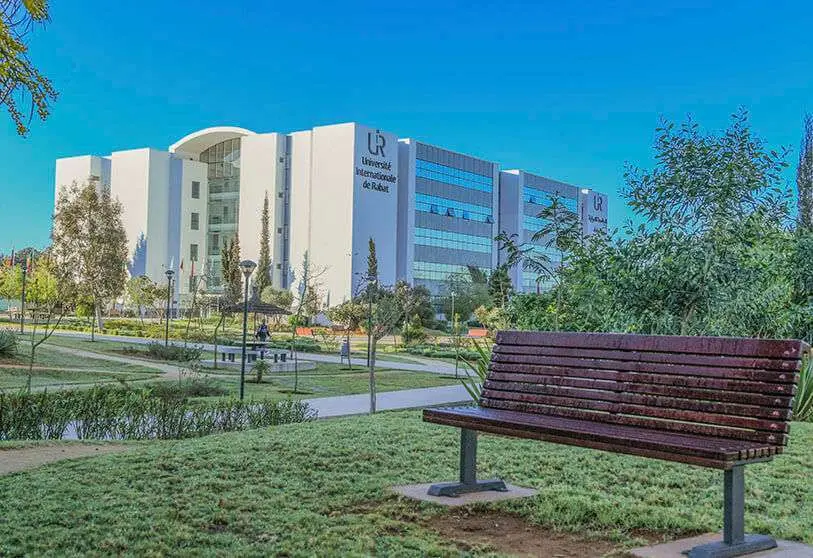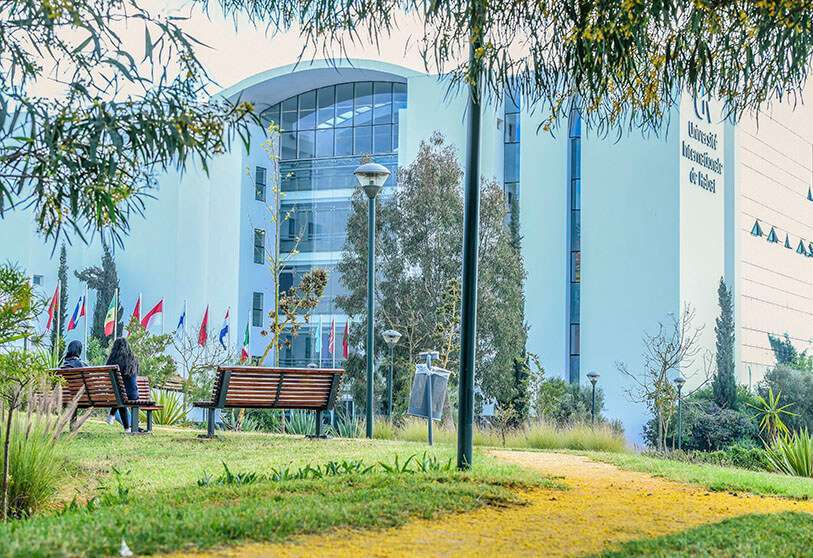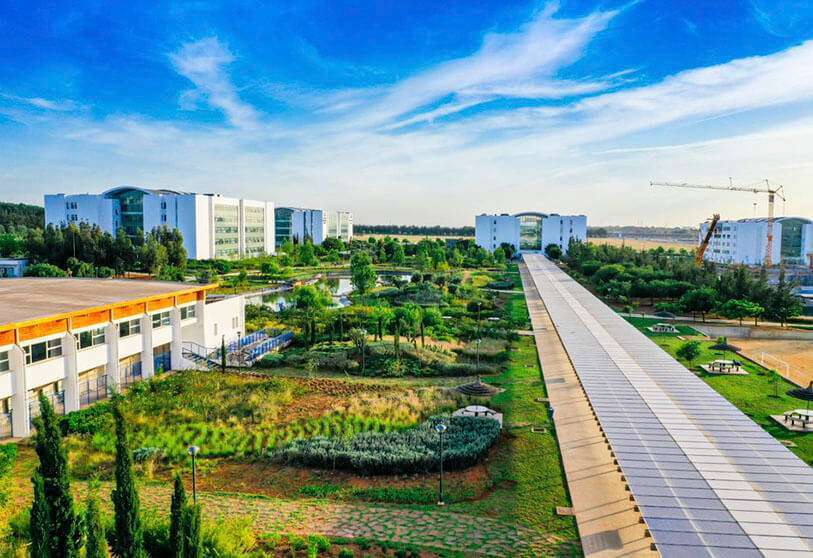La Universidad Internacional de Rabat, a la vanguardia en enseñanza y divulgación durante el confinamiento

The International University of Rabat (UIR) has placed itself at the forefront of Moroccan and African online education and research in this time of confinement caused by the coronavirus pandemic (the state of health emergency will initially last until 20 May in the neighbouring country). The most outstanding initiative is launching the first university WebTV in Morocco a week ago. The initiative of the university, located near the science park of Salé (Technopolis Rabat-Salé), "aims to meet the demand for thematic content in the education sector that is at once informative, academic and university-based", states the UIR in a press release. "Demand is all the stronger in this current context of containment, the UIR WebTV has been put online to be discovered on the following link: https://webtv.uir.ac.ma/", according to the International University of Rabat.
This platform will allow any Internet user to access exclusive multimedia content such as lectures given by eminent national or international personalities, as well as the statements of the faculty members and to discover all the R&D projects developed by the university, which has consolidated itself in the national and African panorama in only ten years of existence.
It will also provide the opportunity to follow future events at the university live or to watch them being rebroadcast, as well as interact with the UIR community. In addition, WebTV offers videos and an image gallery allowing a virtual tour of the campus for future students. "The aims of the WebTV are basically two: to democratize access to the research being carried out at this university and to bring us closer to and communicate with the general public, so that they are aware of what is being done and offered, and to maintain a permanent link with them," summarizes Atalayar, Farid El Asri, professor of anthropology at the UIR.

But WebTV is not the only company on which the young rabatí university is currently embarking. Within the framework of the COVID-19 crisis and with the support of the Moroccan State, the UIR is fully engaged in the manufacture and design of medical materials to combat the pandemic. "The university is working on the manufacture of masks with protective visors for health personnel in several Moroccan hospitals, of which 7,000 units have been made; the design of high security masks (FFP2); respiratory assistance masks and respirators; the equipment of drones with loudspeakers to sensitize the population against COVID-19 and the design of thermal cameras in devices designed to take body temperature at a distance," the institution's communications director Rim Rhmani told Atalayar. "We are the first African university in terms of patents," she says.
In addition to the solidarity aspect, the International University of Rabat has been able to adapt quickly to the challenges of the moment and for the last four weeks students have been able to follow the classes from their homes. After the ban on crowds and the suspension of school and academic activity, the Rabat-based university managed to train the teaching staff for the new circumstance in one week and since the week of March 23rd the classes - held through Microsoft Teams - are a reality. "Almost 90% of our students follow the classes from their homes, which is a great success," explains Spanish teacher and political scientist Beatriz Mesa to Atalayar.
The task of the UIR's commitment to new technological tools goes much further: "It is a question of opening a window for teachers from all departments to intervene and meet with students and people from outside the university. In short: to continue disseminating knowledge and opening up new channels of communication", summarises Mesa in this publication.

"The International University of Rabat has an applied research dimension adapted to the concrete reality. We have become aware of what is happening: there is no possibility of isolation. And today, more than yesterday, we must reflect on the practicalities: it is imperative for our university to be at the heart of society," says El Asri.
It has not been long before the UIR opened up the reality of the coronavirus pandemic as one of its main research lines. "We are an international university and the reality of the COVID-19 is global, so we are all affected; solidarity with the rest of the world, starting with the closest countries, such as Spain, has to make us come out stronger and undertake joint academic and research projects," explains the aforementioned professor of anthropology with optimism.

In addition, the International University of Rabat, which today complements its digital media with the new WebTV, is actively present on social networks through its Facebook, Instagram, Twitter, YouTube channel and website, in order to publicize its activities and training offerings.
Last but not the least, the UIR is standing out for attending to its students in these times of pandemic. "Since the start of the confinement, the UIR has deployed all possible means to preserve the health of the #international #students residing on the University campus," explains the institution based in the Moroccan capital in a note on its official Facebook profile. The post highlights that special attention is being paid to a group of 60 foreign students - mostly from other African countries, but also from Europe - who are being monitored on a daily basis "thanks to the mobilization of the Student Life Directorate and the International Relations Directorate".

"The International University of Rabat has treated us very well," Italian student Serena Salentina tells Atalayar from Milan. Like other foreign students at the Rabat University, Serena experienced the closure of borders and the suspension of academic activity in Morocco at the UIR campus. "When classes stopped, the university installed us foreign students in one building on the campus and offered us free maintenance and all kinds of academic and personal assistance, in addition to a doctor and a psychologist. A week later we started to have online classes, live and interactive", explains the young woman, who is preparing to become a professional translator and interpreter. After returning to Italy on 19 March thanks to the support of her embassy in Morocco, she is now preparing for her final exams, which will bring to a close a semester that has ended abruptly due to the health crisis. "This week I will take the exams orally. We would have had the examination of Dariya, the Moroccan Arabic, in the very same Rabat medina and it's a pity that it won't be like that. But I will continue to study standard Arabic and Spanish, which are the two main languages of my career," she explains in excellent Spanish over the phone.
The UIR organizes weekly distribution of individual food packs for the benefit of these students providing them with the best conditions of sanitary hygiene. "Sports activities, reading, distance courses... residents are currently enjoying the various infrastructure and green spaces on the campus, thus continuing their program of studies with serenity" explains the aforementioned note published on social networks.

Unlike Serena, Polish-born Kasper Haberek is still on the UIR campus. He praises the institution. "The university is managing the situation extraordinarily well," he tells Atalayar from Rabat. "We are very well informed, a WhatsApp group was created for the students from the beginning, and they are always willing to help," he explains. "The treatment is excellent; they bring us food, clean our rooms three times a week, we have psychological help and even an on-campus shop," he abounds. "The online classes are going well. There were some problems at first, but we all get used to it with surprising ease. We hardly missed any classes, we reacted very quickly. After all, it's new for everyone. The teachers have shown great professionalism," explains the young man, who hopes to return home at the end of the month. "I learned a lot of Dariya and now I will continue to study Arabic in my country. The experience has been fantastic and Morocco is a great country that I want to return to as a tourist soon," Haberek told Atalayar.
Soukaina Benmouma, a Moroccan student of political science and international relations at the International University of Rabat, reports on the attention she has received from the institution's educational community. "I went back to my home in Kenitra and started taking my online classes from the second week. We receive many emails from the university administration explaining the use of the new platform. They also ask you to answer questionnaires to improve the quality of the experience. We then upload the homework to the platform. Any questions we have we can ask during school hours. Appointments with the teachers can be requested by sending them an email, and things are explained to us virtually. In addition, there is a group of researchers working on alternatives to deal with this crisis," she told Atalayar. "The experience is not easy, but I try to take advantage of the good things and focus on the positive with the help of our teachers and the administration. The university is even accompanying us psychologically, as they have offered us a psychologist," concludes Benmouma.








